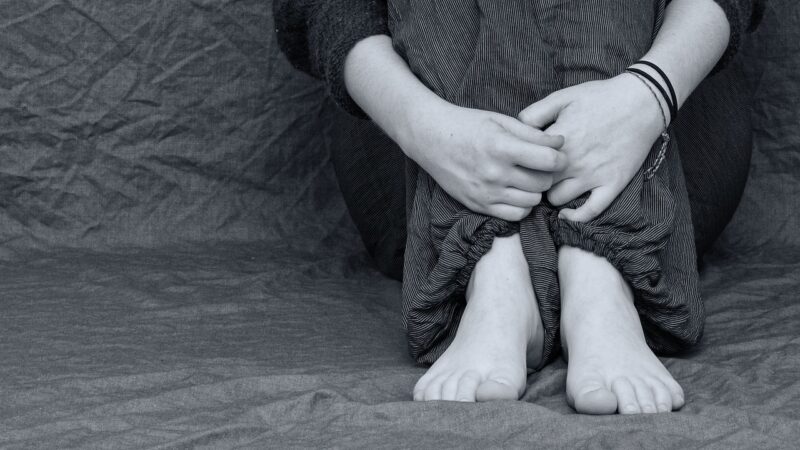In a new report, the UK's migrant communities share some of the devastating situations they have found themselves in during the pandemic.

Government policy, Brexit and the pandemic have had a devastating impact on migrant communities, particularly those needing to access life saving medical treatment, mental health services and food.
In a new report, the UK’s migrant communities share some of the devastating situations they have found themselves in during the pandemic, from having no support while suffering with Covid to families getting just £35 a week to live off and struggling while everyone was panic buying.
The report comes just as MPs have voted to support a new immigration bill that makes arriving in the UK without permission a criminal offence.
MPs voted for the Nationality and Borders Bill on its second reading in the Commons on Tuesday – the bill will give border force officers power to make migrant boats trying to cross the English Channel from France turn around. Officers will be able to use “reasonable force if necessary”.
Home Secretary Priti Patel said the bill is designed to fix the UK’s “broken asylum system”.
In response to the vote, Labour leader Keir Starmer said: “The Conservatives just voted to make it harder to give a safe haven to children fleeing violence and war. They should be ashamed.”
The Between a Rock and a Hard Place report, produced by Racial Justice Network and Queen Mary University of London, shows that migrant communities are grappling with, and still enduring systemic racism, the hostile environment, border controls, poverty, fear and suspicion of authorities and were left to their own devices during recent lockdowns.
The pandemic has brought to the surface existing social, economic and health inequalities. The findings also show that migrants’ mental health has been severely impacted during the pandemic, with many feeling triggered and desperate, as they are unable to work or study while their claim is being processed.
It has been reported that up to a dozen asylum seekers have taken their own lives in the UK over recent months, and as the report highlights, GPs have also been denying vaccines to undocumented people.
According to the report, actions taken by authorities do not address the inequality and inequity brought on by hostile environment policies, the new Immigration Plan, the Police, Crime and Sentencing Bill, the Domestic Abuse Bill in conjunction with Brexit.
People shared the practical difficulties of living on the periphery of society. Local shops not accepting the Aspen card (used to buy essentials), not having enough money to afford PPE or sanitary products and stark racism which has prevented many people being unable to get medical help when they’ve been ill with Covid.
The words ‘Home Office’ have even been used as a way of scaring people into not asking questions when they’re sent to outsourced accommodation.
One case study, Hayma, said: “So we’re getting £35 a week and we are really suffering like there’s not enough during Covid and lockdown. We need to buy masks with Covid and this situation, £35 is not enough.”
Mary added: “There was a time people could not even afford to buy period products. It was really really shocking how many people there are suffering from that and to buy books for children to read.”
It led communities to rally together and help each other instead. Rose said: “And I remember around Christmas Eve with the last food parcels and one of our members had made dinner for us because we hadn’t any dinner. You know, so it was people actually stepping up and caring.”
Penny Wangari-Jones, Director at the Racial Justice Network said: “This report comes from listening and acting upon community concerns. It highlights resilience, resourcefulness of marginalised communities but also the manufactured structural barriers and inequality that made the situation much worse during the pandemic. The authorities, decision and policy makers as well as the general public should take heed.”
Tesfalem Yemane, Eritrean community and doctoral researcher at the University of Leeds said: “The effects of colonial legacies will continue to exist and thrive under the hostile environment policies and we need resist those by coming together and then showing our solidarity to our fellow migrants.”
Laura Loyola-Hernández, University of Leeds, trustee at the Racial Justice Network added: “’The Covid-19 pandemic surfaced and shone a light to health, socio-economic and other inequalities on a regional, national and global scale.
“It is clear that with or without local or national support from authorities, migrant communities stuck between a rock and a hard place, have come together to build a sense of solidarity and mutual support before, during and after the pandemic.”
Lucy is a journalist and human rights masters student. Follow her on Twitter.
To reach hundreds of thousands of new readers and to make the biggest impact we can in the next general election, we need to grow our donor base substantially.
That's why in 2024, we are seeking to generate 150 additional regular donors to support Left Foot Forward's work.
We still need another 124 people to donate to hit the target. You can help. Donate today.



